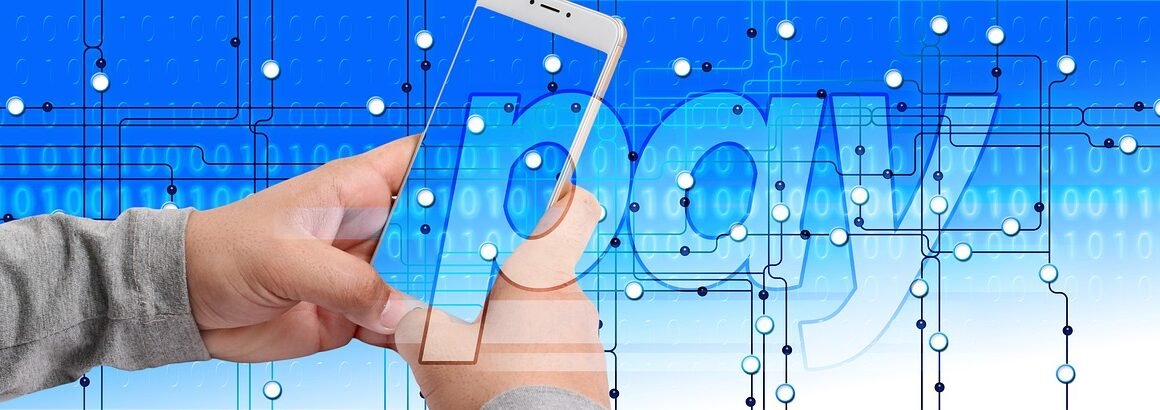DAOs, or Decentralized Autonomous Organizations, represent a paradigm shift in how organizations operate and are governed. Imagine a company run by rules encoded in computer programs, transparent and accessible to everyone. No central authority, just a community making decisions collectively. This is the core promise of a DAO, and its potential is reshaping industries from finance to social networking. Let’s dive into the world of DAOs and explore their mechanics, benefits, and real-world implications.
Understanding Decentralized Autonomous Organizations (DAOs)
What Exactly is a DAO?
A Decentralized Autonomous Organization (DAO) is essentially an internet-native organization managed through rules encoded in smart contracts on a blockchain. These smart contracts automatically execute decisions based on the consensus of its members, eliminating the need for traditional hierarchical management. In simpler terms, it’s a community with a shared bank account and a set of rules decided and enforced by its members through code.
- Decentralized: Control is distributed among members, not held by a single entity.
- Autonomous: The organization operates automatically according to the pre-defined rules within the smart contracts.
- Organization: It’s a structured entity with a specific purpose or goal.
The Key Components of a DAO
Several key components work together to make a DAO function effectively:
- Smart Contracts: These are the foundational building blocks, containing the DAO’s rules and operational logic. They are immutable and transparent.
- Governance Tokens: These tokens represent voting rights within the DAO, allowing members to participate in decision-making processes.
- Treasury: This is the collective pool of funds controlled by the DAO, managed according to the rules encoded in the smart contracts.
- Voting Mechanism: This is how members propose and vote on changes, projects, or allocations of funds. Different DAOs employ various voting systems, from simple majority to more complex quadratic voting.
How DAOs Differ From Traditional Organizations
Traditional organizations are typically hierarchical, with decisions made by a central authority. DAOs offer a stark contrast:
- Transparency: All transactions and decisions are recorded on the blockchain, making them publicly auditable.
- Efficiency: Smart contracts automate many processes, reducing administrative overhead and streamlining operations.
- Community-Driven: The community owns and operates the DAO, fostering a sense of ownership and shared responsibility.
- Global Reach: DAOs can operate across borders without the limitations of traditional legal structures.
The Benefits of Using a DAO Structure
Increased Transparency and Trust
Transparency is a cornerstone of DAOs. Every transaction, proposal, and vote is recorded on the blockchain, providing an immutable audit trail. This level of transparency fosters trust among members and stakeholders.
- Reduces the potential for corruption and mismanagement.
- Increases accountability among participants.
- Builds stronger community trust through shared information.
Enhanced Efficiency and Automation
DAOs automate many organizational processes using smart contracts, eliminating intermediaries and reducing administrative burdens. This leads to increased efficiency and faster decision-making.
- Automated payment processing and fund distribution.
- Streamlined governance and voting procedures.
- Reduced operational costs and increased speed.
Community-Driven Decision Making
DAOs empower their members to actively participate in decision-making, fostering a more democratic and inclusive environment. This community-driven approach can lead to better outcomes and increased engagement.
- Members have a direct say in the direction of the organization.
- Diverse perspectives are considered during decision-making.
- Promotes a sense of ownership and collective responsibility.
Global Collaboration and Accessibility
DAOs operate without geographical constraints, enabling collaboration among individuals from around the world. This global accessibility can unlock new opportunities and talent pools.
- Attracts a diverse range of contributors and talent.
- Facilitates cross-border collaboration and innovation.
- Bypasses traditional geographical barriers to participation.
Real-World Examples of DAOs
DeFi DAOs
Decentralized Finance (DeFi) is a hotbed for DAO innovation. These DAOs govern protocols, manage treasuries, and make decisions about the future of decentralized finance.
- MakerDAO: One of the earliest and most well-known DAOs, MakerDAO governs the Dai stablecoin and the Maker Protocol. Token holders vote on changes to the protocol, risk parameters, and stability fees.
- Compound: This DAO governs the Compound lending protocol, allowing token holders to propose and vote on changes to interest rates, collateral factors, and other key parameters.
Investment DAOs
Investment DAOs pool capital from members to invest in various assets, such as NFTs, real estate, or startups. They democratize access to investment opportunities that might otherwise be limited to accredited investors.
- The LAO: An early example of an investment DAO, The LAO pools capital to invest in early-stage blockchain projects.
- MetaCartel Ventures: A venture DAO focused on funding early-stage Web3 projects.
Social DAOs
Social DAOs aim to build online communities around shared interests, values, or goals. They use governance tokens to empower members to shape the community’s direction and activities.
- Friends with Benefits (FWB): A social DAO focused on building a community of creators, technologists, and artists.
- Seed Club: A DAO focused on supporting and investing in social token communities.
Grant-Giving DAOs
These DAOs distribute grants to projects and individuals contributing to a specific ecosystem or cause. They offer a transparent and community-driven alternative to traditional grant-making processes.
- Gitcoin: A DAO that facilitates funding for open-source software development through quadratic funding.
- MolochDAO: A DAO focused on funding Ethereum infrastructure development.
Challenges and Future of DAOs
Legal and Regulatory Uncertainty
The legal and regulatory landscape surrounding DAOs is still evolving, creating uncertainty for participants. Clear legal frameworks are needed to provide clarity and protection.
- Lack of legal recognition in many jurisdictions.
- Uncertainty regarding liability and responsibility.
- Need for clearer regulatory guidelines to foster adoption.
Security Risks and Vulnerabilities
DAOs are susceptible to security risks, such as smart contract vulnerabilities and governance attacks. Robust security measures are essential to protect DAO assets and prevent malicious actors from exploiting the system.
- Smart contract bugs can lead to fund losses.
- Governance attacks can manipulate voting outcomes.
- Importance of security audits and best practices.
Scalability and Efficiency
Some DAO governance models can be slow and inefficient, particularly as the organization grows. Scalable governance solutions are needed to ensure DAOs can effectively manage large memberships and complex decision-making processes.
- Voting processes can be time-consuming and costly.
- Decision fatigue can hinder participation.
- Need for innovative governance models to improve scalability.
The Future Outlook for DAOs
Despite these challenges, DAOs hold immense potential to revolutionize how organizations operate. As technology matures and regulatory frameworks become clearer, we can expect to see DAOs becoming increasingly prevalent in various industries.
- Increased adoption across diverse sectors.
- Development of more sophisticated governance tools.
- Integration with traditional legal and business structures.
- DAOs evolving into mainstream organizational models.
Conclusion
DAOs are more than just a buzzword; they represent a fundamentally new way to organize and coordinate human activity. By leveraging blockchain technology and smart contracts, DAOs empower communities, foster transparency, and automate processes. While challenges remain, the potential benefits of DAOs are undeniable. As the technology evolves and adoption grows, DAOs are poised to reshape the future of work, finance, and governance. The journey of decentralized autonomous organizations is just beginning, and the possibilities are limitless.


